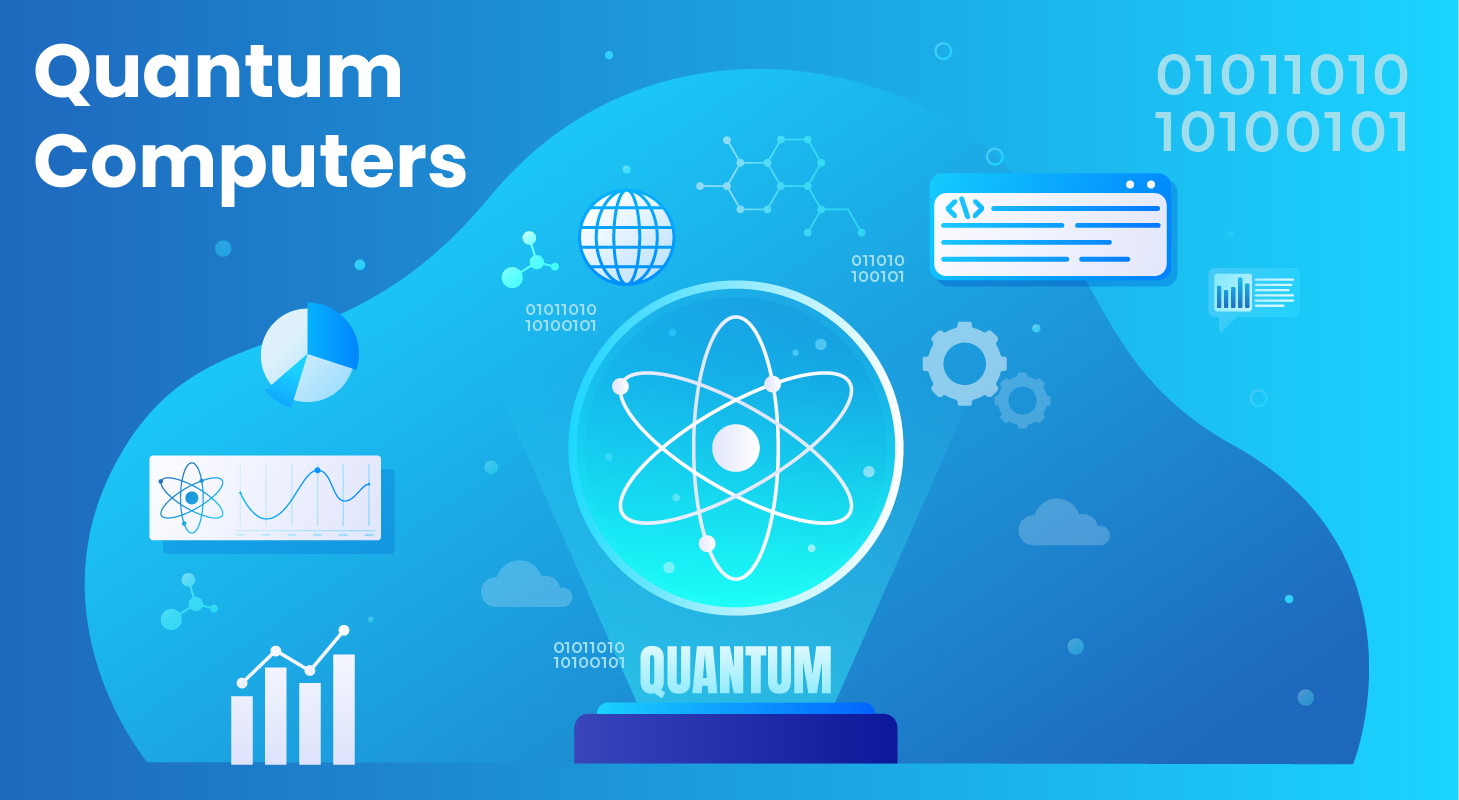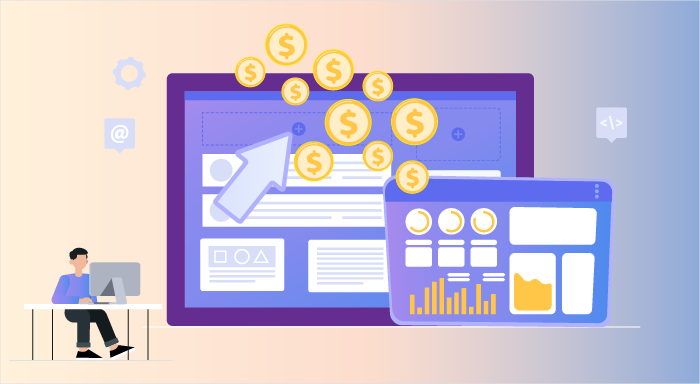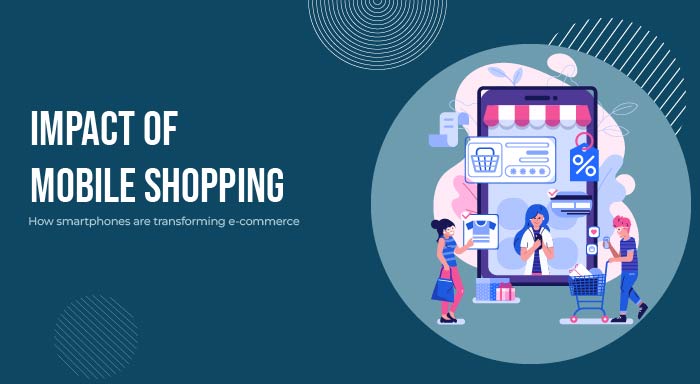Quantum mechanics is the branch of physics that deals with the behavior of particles at a microscopic level. At subatomic levels, the differences in their behaviors are studied.
Quantum computing is a field of computers where theories of computer science, physics, and mathematics that use quantum mechanics are used to solve complex problems that classical computers cannot. It is an emerging technology.
Quantum technology is also available in the form of hardware. IBM makes hardware for quantum computers.
The field of quantum computing deals with application development and hardware research.
Earlier for advanced calculations and AI-based problems, supercomputers were used. They can handle very large calculations and even advanced AI tools. Supercomputers use binary codes to perform actions. However binary codes didn't solve many kinds of problems. Hence supercomputers were developed that used quantum bits instead of binary bits and solved calculations using quantum states.
A classical computer uses binary bits to perform a function whereas a quantum computer uses qubits (CUE-bits) to perform a function using multidimensional quantum algorithms. Qubits in quantum computers are analogous to binary bits in classical computers. Both classical computers and quantum computers perform functions by processing and manipulating these bits.
Quantum algorithms create multidimensional computational spaces to solve complex problems. Engineering firms, global shipping companies, financial institutions, etc are researching use cases where quantum computers can solve crucial problems in their fields.
Here are some use cases of quantum computers:
- In developing new materials and drugs
- In designing more efficient algorithms for machine learning and AI.
- Solving complex physical and chemical systems
- Developing new financial algorithms
- Portfolio optimization in finance
- solving problems that are currently impossible for even the most powerful supercomputers on the market
Nowadays quantum computers are owned by only companies. For example, Google AI uses it to have innovative machine learning algorithms. Recently IBM has also sent an invitation to access quantum computational resources via its cloud-based computing platform.
Places where Quantum Computing is currently available:
- IBM Quantum Cloud Services: IBM’s cloud computing platform is IBM Cloud through which IBM offers its access to quantum computing. However, the IBM cloud account has to pay a fee to access quantum computers.
- Rigetti Computing Quantum Cloud Services: Through its cloud computing service called Rigetti Quantum Cloud Services Rigetti offers access to its quantum computers.
- D-Wave Systems: It offers access to its quantum computers to a selected group of customers.
- Google Quantum AI: To a selected group of researchers Google AI offers access to quantum computers
Some groups of academic and government institutions are actively involved in quantum computing. These groups focus on utilizing quantum computers for research purposes. However, there are occasions where they might offer restricted availability of quantum computers to commercial users.
Types of users to whom quantum computing is available:
- Companies: Through their cloud computing platforms companies can offer their quantum computing services by purchasing it. They can also participate in a research program that offers access to quantum computers.
- Researchers: They can access quantum computers through commercial offerings, research programs, or by developing their quantum computers.
- Individual users: They can access quantum computers through cloud computing platforms. However, this is limited to only small tasks.
Components of a quantum computer
Just like classical computers quantum computers also have hardware and software
1. Quantum hardware
It has three main components.
- Quantum Data Plane
This is the core of the quantum computer. It consists of the physical qubits and the structures required to hold them in place. - Control and Measurement Plane
This converts digital signals into analog or wave control signals which perform the operations on the qubits in the quantum data plane. - Control Processor Plane and Host Processor
The control processor plane executes the quantum algorithm or sequence of operations.
The host processor interacts with the quantum software and gives a digital signal or classical bits sequence to the control and measurement plane.
2. Quantum Software
This implements unique quantum algorithms using quantum circuits which is a computing routine that defines a series of logical quantum operations on the underlying qubits. Through various software development tools and libraries, developers can code quantum algorithms.
Differences between Quantum Computer and Classical Computer
|
|
Quantum Computers |
Classical Computer |
Processing of operations |
Uses a set of superconducting qubits |
Have memory or processor |
Computing Power |
Uses qubits for multidimensional quantum algorithms. Their processing power increases exponentially as qubits are added contributing to more computing power. |
Uses bits to operate various functions and programs. Their power increases linearly as more bits are added contributing to much less computing power.
|
Type of tasks |
Ideal for a higher level of task, e.g., running simulations, analyzing data, creating energy-efficient batteries, etc.
|
Best for everyday tasks |
Error rates |
High error rates |
Low error rates |
Care and Protection |
Requires extra care and protection from the slightest vibrations. These must be kept extremely cold super-cooled superfluids. |
Don't need extra special care |
Cost |
More expensive |
Less expensive |
Challenges Prevailing to the Access of Quantum Computers
Several hurdles are there to the availability of quantum computers to widespread masses. There are advancements made in quantum computing but still due to several factors it is not available with ease to widespread people. The reasons are
1. Qubit Decoherence
As we now know quantum computers use qubits instead of binary bits and
qubits are highly susceptible to their surroundings. Even minor disruptions can strip qubits of their quantum attributes. We call this phenomenon decoherence. This is a major reason why quantum technology is not accessible to common people. Researchers are trying various methods to alleviate the decoherence.
2. Scalability
Making quantum computers in large numbers requires a large number of qubits to be developed which can again lead to many errors which can be extremely challenging. Hence researchers are trying to increase the scalability of quantum technology.
3. Hardware Development
There is not much hardware development in quantum computing as it is expensive to manufacture.
4. Software Development
Quantum computing technology is still in development and has yet to reach its full potential. Hence quantum algorithms need a new programming language and tools. This is quite a challenging part.
5. Expenditure
Constructing and operating quantum computers have substantial expenses. Its hardware and cooling systems are very costly. This makes quantum computers uneconomical in most areas.
Is there any option for common people to use quantum computing now?
Yes, you can get access to quantum computing service using AWS (Amazon Web Services) functionality called Amazon Bracket. It will help you with scientific research and software development for quantum computing. The tasks you can do with it are
- Using its development tools you can work with different types of quantum computers and circuit simulators.
- With its management controls for both quantum and classical technology, you can build quantum projects on a cloud platform.
- In case of any hurdle or query, you can contact its technical support team through Amazon Quantum Solutions Lab. It has experts and consultants to help users.
- You also get access to trapped ion, superconducting, photonic, and annealing devices.
Conclusion
In the future, the availability of quantum computers is highly expected to expand. The expenses associated with it will decrease making it more accessible to people. More organizations will be able to access and rent quantum computers. Hopefully, cloud computing service providers will introduce more resilient and versatile quantum computers through their cloud-based frameworks. This will streamline the availability of quantum computers for both corporations and researchers.








